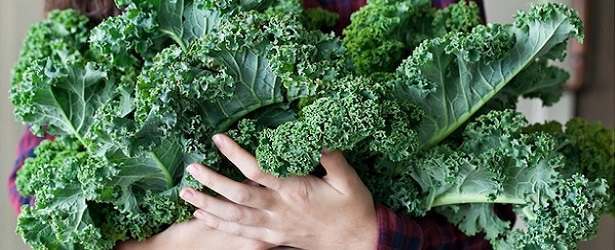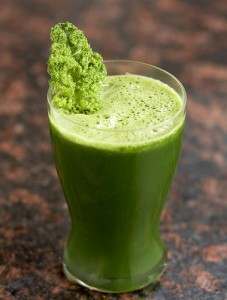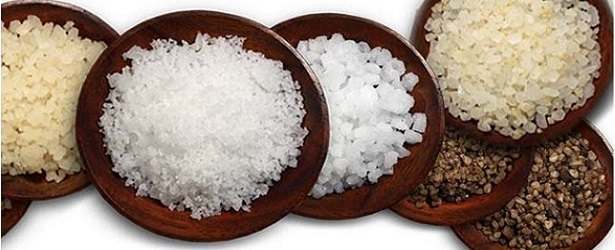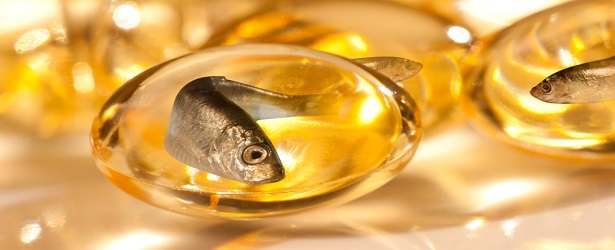
Can Kale Cause Hypothyroidism?
Kale is a food item which is rich in many nutrients like anti-oxidants, iron, vitamin C, calcium, fibers etc., yet it is getting all of the negative attention because of its speculated association with the hypothyroidism. Let us figure out whether these speculations are true or not.
Kale has been referred to as a goitrogenic vegetable, just like cruciferous veggies which are rich in goitrogens, for example collard greens, turnips, cabbage, bok choy, Brussel sprouts, broccoli, arugula, watercress and cauliflower etc.
These veggies contain thiocyanate, this substance can interfere with iodine metabolism when present in large quantities. Iodine is essential for the production of thyroid hormones, therefore high levels of the thiocyanate can lead to the decreased production of thyroid hormones known as the hypothyroidism, along with a compensatory enlargement of the thyroid gland.
If taken in moderation, kale or any other cruciferous veggie is very beneficial for our health. Their benefits outweigh any thyroid risks associated with them. Despite the popular belief, goitrogenic effects of kale are produced only when its consumption is excessive. According to the experts, even if a person is suffering from an underlying thyroid disease, normal usage of cruciferous vegetables will not aggravate his or her condition. However, just to be on the safe side, you must seek advice from a doctor to keep your thyroid condition under control.
Amount of Kale You can Eat Safely
 Exact thiocyanate content present in the kale is unknown. Similarly, the quantity of kale which must be ingested to produce a thyroid problem is also undefined at the moment. The studies have shown that the people who drink pressed juice of kale are more prone to its side effects on the thyroid gland. Juicing the kale concentrates it, therefore making it unsuitable for the people taking a diet deficient in iodine or those who are on a restricted diet, for example vegans. Americans have overcome iodine deficiency by adding sufficient iodine to their diet, in the form of iodized salt etc. and by taking supplements and multivitamins which contain iodine. Amount of iodine needed for the infants up to the age of one year is 115 to 130 micrograms, on a daily basis. While the recommended daily intake of dietary iodine is 90 micrograms for the kids 1 to 8 years of age and 120 micrograms for the kids 9 to 13 years of age. On the other hand, adolescents and adults require 150 micrograms of iodine in their diet daily. Lactating and pregnant women have increased demand for iodine and require 295 and 220 micrograms, respectively. According to a research conducted on Americans, their iodine intake was found to be more than enough, with men consuming 230 to 300 micrograms and women consuming 180 to 210 micrograms, daily.
Exact thiocyanate content present in the kale is unknown. Similarly, the quantity of kale which must be ingested to produce a thyroid problem is also undefined at the moment. The studies have shown that the people who drink pressed juice of kale are more prone to its side effects on the thyroid gland. Juicing the kale concentrates it, therefore making it unsuitable for the people taking a diet deficient in iodine or those who are on a restricted diet, for example vegans. Americans have overcome iodine deficiency by adding sufficient iodine to their diet, in the form of iodized salt etc. and by taking supplements and multivitamins which contain iodine. Amount of iodine needed for the infants up to the age of one year is 115 to 130 micrograms, on a daily basis. While the recommended daily intake of dietary iodine is 90 micrograms for the kids 1 to 8 years of age and 120 micrograms for the kids 9 to 13 years of age. On the other hand, adolescents and adults require 150 micrograms of iodine in their diet daily. Lactating and pregnant women have increased demand for iodine and require 295 and 220 micrograms, respectively. According to a research conducted on Americans, their iodine intake was found to be more than enough, with men consuming 230 to 300 micrograms and women consuming 180 to 210 micrograms, daily.
In a nut shell, our media is trying to exaggerate the goitrogenic effects of the thyroid gland on our body. Our body needs greens and eating them in moderate quantities is, in fact good for our health. However, you must consult a physician and seek his advice regarding your risk for the thyroid disease and food items good for your health.
TOP 5
THYROIDProducts |
|||||
| Thyraid | ThyroMend | Thyrene | SupraHealth | Blue Spring | |
|---|---|---|---|---|---|
| 1 | 2 | 3 | 4 | 5 | |
| Price (1 bottle) Price (6 bottles)best value |
$49.95 $139.80 |
$38.95 $233.70 |
$39.99 $159.96 |
$59.97 $323.84 |
$35.99 $194.35 |
| Overall Rating | 99.50% | 85.70% | 76.60% | 68% | 60.20% |
| Performance* |





|





|





|





|





|
| Speed of Results* | Extremely Fast | Good | Average | Average | Slow |
| Quality of Ingredients | Premium | Good | Good | Average | Average |
| Customer Satisfaction Evaluation | 99.20% | 84% | 74% | 68% | 60% |
| Safety Evaluation | Safe for Use | Safe for Use | Safe for Use | Safe for Use | Safe for Use |
| Customer Service Rating |





|





|





|





|





|
| Reorder Rate | Highest | Good | Good | Average | Average |
| Return Policy | Risk Free | Risk Free | Handling & Restocking Fee | Risk Free | Risk Free |
| Success Rate | 99.20% | 85% | 69.20% | 67.50% | 60% |

 Subscribe Now
Subscribe Now











